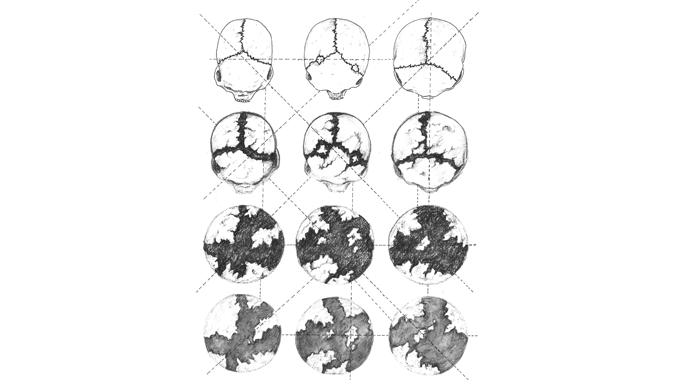
BY:
Durba Chattaraj, Assistant Professor of Anthropology and Writing, Ashoka University
I’ll wager that as anthropologists many of us have an anthro-crush — that scholar in our field whose work inspires us above all others. Mine is Anténor Firmin (1850-1911), Haitian intellectual and diplomat whose pathbreaking refutation of de Gobineau’s The Inequality of the Human Races exemplifies the moral and methodological capaciousness of our discipline.
So capacious is anthropology that as early as 1885, Firmin, in The Equality of the Human Races was able to make a persuasive argument for radical equality using the tools of the discipline, even as anthropologists in the Paris Anthropological Society, of which Firmin was a member, continued to believe in racial hierarchy as fact. Even in its most nascent stages anthropology allowed him to make morally and scientifically prescient arguments.
Firmin believed in anthropology’s possibilities. He wrote, “Anthropology requires the effort of the best minds…[It is] the discipline which can best provide answers to the great problem of the origin and nature of man and the question of his place in nature (2000: 2).” Replace man with human, and Firmin’s belief in our discipline’s promise holds, under vastly different conditions. In the anthropocene, the question of our nature, and of our place in nature, has never been more urgent. And we need not just the “best” minds, but as many minds as possible to think about this. Thinking anthropologically means thinking with difference — radically questioning our basic premises regarding the social, moral, political and economic worlds that humans, and increasingly non-humans, occupy. It means thinking from a place of otherness, thereby fostering the imagining of alternatives. Anthropological thinking goes beyond tolerance, or even empathy. It calls on us to make the daring, always incomplete, leap into another lifeworld.
What better preparation could there be for stepping out into an ever more complexly interconnected world? Anthropologist Tim Ingold has spoken about the contemporary importance of our discipline, arguing for the urgency of inculcating an “anthropological attitude” among students.[1] Yet anthropology is often regarded by students as a niche discipline, and has faced dwindling enrollments in recent years[2]. Often the final click in jejune clickbait surveys with titles like “The Top-10 Lowest Paying College Majors,” it is time for us to work harder to engage with students who may never commit to majors, minors, or elective courses in our field. There is too much difference in the world for us to graduate thousands of students who have never taken a course that teaches them how to think with difference.
How do we inculcate an “anthropological attitude” in students who may never take an anthropology course? A partial answer is for anthropologists to be actively involved in the curricular design and teaching of core courses in their universities. In particular, anthropologists should attempt to teach first-year writing and critical thinking seminars. Globally, many writing programs are adopting a writing-across-the-curriculum/disciplines approach, and might well welcome such inputs from us.
Anthropology is a fruitful field from which to teach writing because it is ecumenical about evidence. It is poised between a humanity and a social science, and in the cases of biological and physical anthropology, a science. It allows for both qualitative and quantitative evidence; for big-picture statistical accounts of society, as well as close readings of rumors, whispers, love letters, jokes; for poetics as well as politics. Thus it introduces students to a wide range of evidentiary practices early on. This facilitates transfer across disciplines, and enhances learning within a broad liberal arts context. In addition, encountering anthropology in a writing seminar attracts students towards other anthropology courses. Finally, through the discipline’s core methodology of participant observation, lived experience, rather than a synthesis of pre-existing texts, is the source from which conclusions about the world are derived. This destabilizes for students the authority of written text as the main source of knowledge. In a
world where textual representation is unequal and uneven, it is important that students are introduced to multiple ways to think about human experience.
Firmin himself marvelled at anthropology’s capaciousness: “No other field of study is as complex as this one. Here one must reason with self-assurance on every subject, whether it has to do with spirit or with matter. One must consider both world and thought, both phenomenon and noumenon (2002:4).”
Let us introduce as many students as possible to this field of spirit and matter. And if they don’t come to us, let us go to them, through extending outwards into writing seminars and other core curricular requirements in our universities.
Durba Chattaraj
Assistant Professor of Anthropology and Writing, Ashoka University
Illustration by Labonie Roy
References
Firmin, Joseph-Anténor. 2002. The Equality of the Human Races. With an Introduction by Carolyn Fluehr-Lobban and translated by Asselin Charles. University of Illinois
[1] https://culanth.org/fieldsights/841-enough-about-ethnography-an-interview-with-tim-ingold
[2] http://www.anthropology-news.org/index.php/2017/11/03/who-majors-in-anthropology-and-why/
https://commons.wikimedia.org/wiki/File:Joseph-Anténor_Firmin,_1850-1911.png

Leave a Reply
You must be logged in to post a comment.